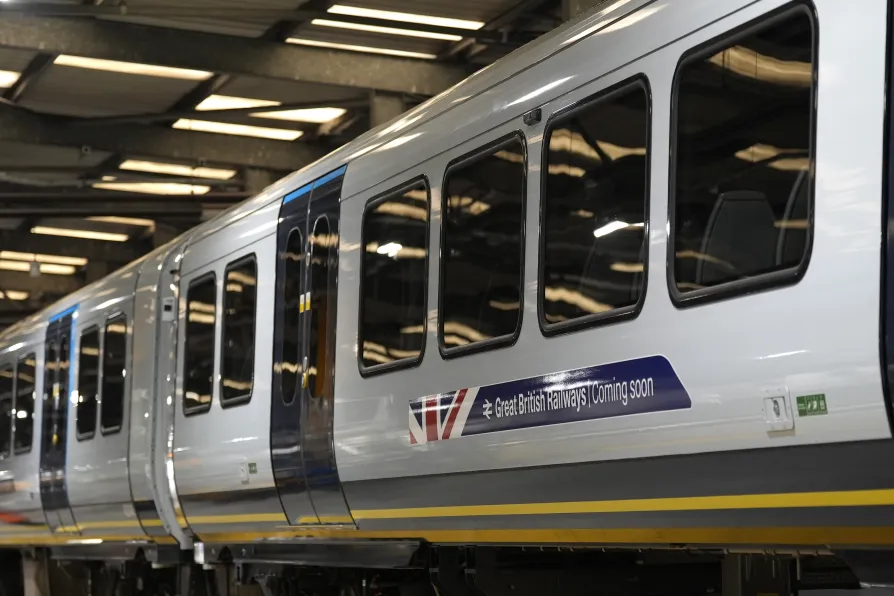
 A view of Great British Railways branding on the side of a train carriage at the South Western Railway (SWR) Bournemouth Traincare Depot, in Dorset, May 22, 2025
A view of Great British Railways branding on the side of a train carriage at the South Western Railway (SWR) Bournemouth Traincare Depot, in Dorset, May 22, 2025
RAIL experts and campaign groups will launch a report today urging Labour to ensure that public ownership is the “final destination” of its rail reforms.
The report, titled Passengers not Profit: A Vision for the Railways Bill, sets out reforms its authors believe are essential for the government’s upcoming Bill to deliver the quality of services that passengers expect.
Cat Hobbs, director of We Own It, who co-ordinated the report, said: “Without the right implementation and package of broader reforms, the results could disappoint passengers.
“Public ownership must be a clear success, and it must be seen as such.”
The report, which includes contributions from experts, ministers and campaigners, comes just weeks after publicly owned operators LNER, Northern and TransPennine announced a joint move to save passengers money on fares.
The report’s authors say this shows the benefits of eliminating competition between operators and allowing deep collaboration.
The report calls for an end to wasteful privatised rolling-stock companies (known as roscos), an end to “extractive” open-access operators and the removal of competition law to help reduce fares.
Dr Grace Brown of the University of Glasgow, described rosco leasing as “one of the most wasteful aspects of our railways.” She said: “Since privatisation, roscos have extracted billions in profits — up to 25 per cent of every ticket sold — while reinvesting little in new trains.
“This leaves passengers with outdated fleets, even though rosco dividends between 2012-18 could have paid for 700 new vehicles.”
She added that rejecting profiteering models could save hundreds of millions through publicly funded rolling stock, with savings reinvested in the system rather than offshore tax havens.
MP Chris Hinchliff, who had the Labour whip suspended in July over his opposition to welfare cuts, welcomed the report.
He said: “We Own It’s proposals align with the government’s ambition to deliver well-resourced, affordable railways that improve connectivity and help us reach net zero by getting people out of polluting cars and onto clean, reliable trains.”
We Own It lead campaigner Johnbosco Nwogbo warned that even small-scale open-access operators “pose a real threat to efficiently running the other 99 per cent” of the system.
And Association of British Commuters co-founder Emily Sullivan said: “The government is planning to continue with the same competition-based framework we had under privatisation, which will severely restrict socioeconomic benefits and the value of public money.”

Our groundbreaking report reveals how private rail companies are bleeding millions from public coffers through exploitative leasing practices — but we have the solutions, writes Aslef Scottish organiser KEVIN LINDSAY













